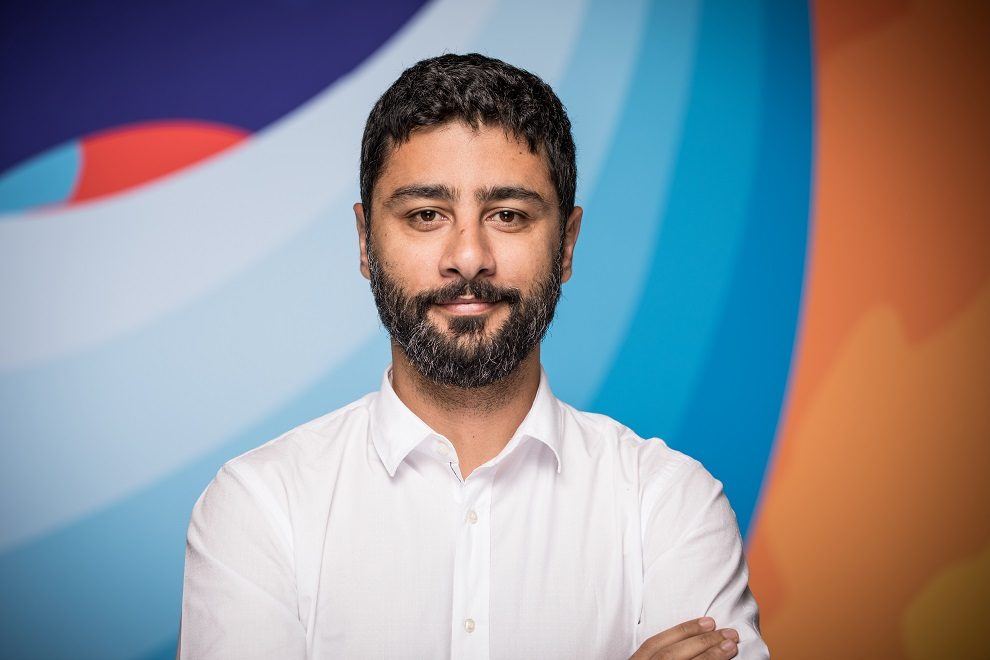Khalid Athar: What role is Facebook playing in the tech ecosystem for the region?
Alain Mayni: People come to Facebook to share their stories, see the world through the eyes of others and connect with friends and family. Our mission is to give people the power to build community and bring the world closer together, through a family of apps and services that are available for people as well as for businesses. Facebook is therefore an enabler for businesses across industries, and particularly in the tech and connectivity space.
Facebook has been working with a large number of leading telecom players in the MENA region addressing a wide range of commercial and technical use cases. Additionally, Facebook’s mobile partnerships team engages with many operators on connectivity programs that aim to make the internet more affordable and accessible.
KA: What role did COVID-19 play in transforming the telecom industry?
AM: With the Covid-19 pandemic, telecom operators proved resilient and essential for social and business continuity. Especially here in the MENA region, they were able to pivot and respond with a range of solutions for a digital-first world such as connecting people to vital health information to raise public awareness, accelerating their shift to digital channels, commerce and payments, enabling seamless remote working and education, and fueling the explosive growth in mobile and home entertainment (such as streaming and gaming).
On the flipside, lockdowns and lack of mobility impacted valuable revenue streams for telcos. Globally, GSMA reported revenue drops of 4 to 8%, driven mainly by the loss of the roaming business, the closure of stores, and the slowdown of the enterprise segment. This is over and above having to manage a remote workforce, an unprecedented surge in demand, and delays in infrastructure deployment and device shipments.
KA: As a remote operating environment becomes the new normal, what would be needed for telecom service providers and businesses to evolve their commercial strategies accordingly?
AM: Successful businesses have proven that customer-centricity is integral to success. Telecom operators should develop their offering to meet their customer demands and address the rise of remote working. On top of digitizing the customer experience, we should see an enhanced offering of home services and tailored packages to remote workers including broadband and mobile wifi. On the enterprise front, operators must evolve their proposition and shift from a connectivity supplier to a comprehensive tech enabler for the businesses they serve, by offering integrated digital and cloud solutions, as well as collaboration and communication tools.
KA: How important do you think are partnerships between the tech, telecom and retail industries?
AM: Consumers are increasingly empowered by choice and instant access. They are shopping seamlessly between online and in-store to find the right product, brand and experience. And with last year’s significant increase in online shopping, retailers and brands, including ones tech and telecom, had to adapt quickly and condense years of digital transformation in just a few months, to meet the evolving demand.
It is more important than ever to collaborate and drive relevance and convenience, to meet consumers where they are. Thus, effective Industry Partnerships and co-marketing are instrumental for winning new customers and driving sales
And Facebook is an enabler in this equation; Brands are partnering with retailers to integrate Facebook Collaborative Ads into the shopper journey. In the past 1 year brands have created an estimated $1.5Bn and have generated ~6% of online traffic for retailers globally through Facebook’s Collaborative Ads.
Case in point, Samsung Gulf wanted to capitalize on the shopping spikes during the period of Singles Day, Black Friday and Cyber Monday. They used Collaborative Ads along with other campaign best practices to drive sales on the e-shop of Sharaf DG, one of the largest electronics retailers in the UAE, and saw a high Return-on-ad-spend of 2.74X and a lift of purchases across all Samsung products
We are also spotting new trends and building matching solutions to further enable industry partnerships and for people to have a timely, relevant and personalized shopping experience such as conversational commerce, shopping ads, Live shopping or shopping with creators.
KA: How do you think telecom operators turbocharge Customer Value Management?
AM: Customer value management is not only the revenue you make up from existing customers. It is also the customer experience, and therefore the customer satisfaction and loyalty. In essence, it’s about seamlessly driving the right action from the right customer on the right channel.
With the use of consumer engagement tools and solutions with precise targeting and predictive modelling, telecom brands are able to use platforms like Facebook to drive customer value. These solutions help operators digitize and enhance customer value management, unlocking several commercial use cases throughout the customer journey such as targeting recently acquired customers to drive app downloads or push self-care, driving up-sell opportunities with high-value customers, and targeting churned customers with offers to win them back.
In the MENA region, Etisalat UAE encouraged subscribers to download its loyalty app Smiles and take advantage of the available offers. They used dynamic ads to automatically turn their catalogue of offers into ads targeting customers who had not installed or engaged with the app. They managed to increase the app installs by 33% and the number of offers redeemed from the app by 20%
UAE telecom operator, du, created a WhatsApp-powered virtual assistant, Blu, which was made available to customers in the Support section of du’s website. Customers began to initiate a variety of conversations related to bill payments, roaming service activations, online order tracking, mobile recharge, and account registration. 80% of customers chose to solve their queries via WhatsApp and 50% of customer enquiries received over WhatsApp were resolved on the platform itself, reducing call centre volumes.
KA: With more and more companies working on redefining their content strategy, how important is video going to be and what role has Facebook played so far?
AM: Video is a powerful medium for bringing people together. It is exceptional in its effectiveness to connect people through storytelling, and bring people closer together over shared interests and moments of entertainment.
People are discovering and watching video in diverse formats across our family of apps, each offering distinct viewer and ad experiences. People can be instantly entertained through shorter form video – in environments like Feed, Stories, and Reels – and spend more time with topics they care about through longer form video – in environments like Facebook Watch, IGTV and Live.
According to an Ipsos study from last November, video viewers cited Instagram and Facebook as the most popular video platforms for connecting with brands. Using a combination of our video products, brands can make relevant connections where people are viewing video online. That’s why we want to provide more choice for how advertisers can utilize our offering, particularly with growing solutions like In-Stream ads.
Over 2 billion people watch Facebook In-Stream eligible videos every month and brands are capitalizing on that — Virgin Mobile UAE lifted ad recall by 7.9 points (above industry average), as well message association and purchase intent among people in the UAE after adding the in-stream video placement for its Facebook ads
Zain Saudi leveraged Facebook’s In-Stream topic-based targeting tool. This new feature embeds ads within content that is contextually relevant to a target consumer. The campaign promoted Zain 5G offering and drove +5.0 points lift in attribute rating (vs. the 0.8 points EMEA average), along with a +1.8-point lift in purchase intent (vs. 0.9 point EMEA average)
We continue to expand our ad offerings into new surfaces (stories, Reels) and continue to bring new opportunities for brands to better engage with relevant audiences.
KA: What role will digital experiences play in evolving the region’s telecoms and ICT sector?
AM: In the present COVID world, connectivity has proved essential for social and business continuity and telecom operators are at the heart of it, especially here in the MENA region, where they were able to pivot and respond with a range of digital measures and solutions for a world that has become a ‘digital-first’.
The need for seamless digital experiences have led telecom operators to digitize their own customer journey including their marketing, sales and care functions through platforms like WhatsApp and Messenger. On top of improving customer satisfaction, operators are also realizing cost reductions through these digital solutions.
In parallel, and with the commoditization of voice and data offering in saturated markets like the GCC, operators are diversifying their services and partnerships beyond the core offering using the power of digital to shape experiences – GSMA reported that Services beyond core have reached an average of 20% of total revenues for major operators globally. Equally in MENA, operators have been launching youth propositions and MVNOs and investing in new services such as fintech and e-wallets, and media and entertainment.
Platforms like Facebook play a key role in driving the growth and adoption of these services through marketing and analytics solutions. In Saudi Arabia, stc Pay encouraged Saudi youth to download and use its app through a series of video ads that reached a broad audience of youngsters with an interest in financial technology. Not only did the campaign increase downloads and registrations, but it also drove a significant lift in deep funnel metrics such as completed Know-Your-Customer forms.
KA: How can the consumer segment be fuelled for growth within the region?
AM: The lockdowns and lack of mobility have impacted the telecom operators’ ability to acquire new customers among other valuable revenue streams. As they look for ways to re-accelerate commercial growth, operators are now turning to existing customers, particularly in saturated markets like the GCC, to protect revenue and re-accelerate growth making Customer Value Management a key practice which is anyway essential for healthy and long-term revenue growth.
Customers expect a seamless omnichannel experience. With traditional telcos, however, that remains a challenge as they rely on offline and costly touchpoints to service customers with a lack of optimal digital interfaces.
We believe operators can extend their CVM efforts to Facebook and use it as a channel. And as a result they can achieve OpEx savings, increase profitability and reduce churn at lower costs per outcomes.
KA: How important is empowering the SMB ecosystem with innovative solutions?
AM: With SMBs comprising 99 percent and 98 percent of businesses in Saudi Arabia and the UAE respectively and increasingly contributing to the national GDPs in our region, telecom firms are needed to provide solutions that are cost-effective to support the economic recovery of these SMBs given how vital this segment is for telecom firms’ revenue growth.
Responding to the challenges posed by the pandemic, operators in the region have sought to become a one-stop-shop for SMBs, offering end-to-end solutions that include core connectivity and cloud solutions, digital marketing web development and hosting and even legal and logistics services. Etisalat UAE’s Business Edge offering would be a good example of that.
Facebook is also actively working on empowering the small and medium business in the region. There are definitely a lot synergies that we can create by collaborating with telecom operators on that topic
KA: Do you think that social media platforms such as Facebook can prove to be critical trusted partners for telcos?
AM: Indeed. As telecom operators develop their strategies and digital agendas, they can rely on the Facebook team to advise, train and support them with solutions and tools that drive business value.
Facebook’s value proposition is holistic and covers a wide range of commercial and marketing use cases both in the B2C and B2B segments, technical use cases including network optimization through analytics and general forward-looking innovations including content, AR/VR, and even internal collaboration and culture through tools like Workplace.
KA: What could telecom operators do to accelerate their commercial strategies for recovery?
AM: As telecom operators look to re-accelerate commercial growth, it is important for them to enhance customer value management, digitize the customer experience as well as marketing, sales and servicing while constantly studying actionable insights to optimize engagement investments. They should also enrich and tailor their offering both in the B2C and B2B segments to battle the flattening connectivity revenues, address the growing demand of digital services and the rise of remote working.












